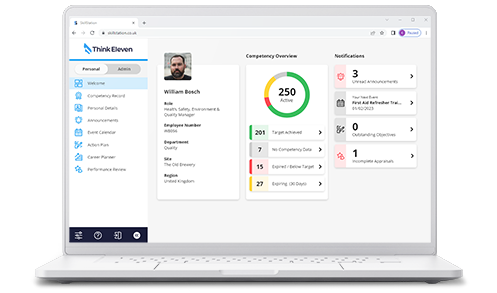Agile Methodologies: Utilise Agile Processes To Run Projects Efficiently And Strengthen Teams eLearning Course
Course Overview
Have you heard the term “Agile” thrown around in your projects but never been properly instructed on how to get the most from the methodology? Have you been using Agile Project Management methods for some time and are looking for ways to improve your execution? Have you recently been put in charge of the budget for an Agile project and need further guidance on how to accurately budget and avoid scope creep? If so, this course is designed for you.
Whether you’re new to Agile or you’ve worked with it before, there’s something in it for you. The Agile Methodology originates from software engineering. It provided developers with the flexibility to adapt to changing requirements, which was a challenge with earlier approaches. Agile has since been adapted for use in any business project. The methodology involves working in short phases with regular reviews.
The course starts out by recapping the fundamentals of the methodology, helping new adopters of Agile get up to speed, and refreshing the memory of anyone who's used it before. Next, we move on to Agile budgeting. You’ll learn the rationale behind Agile budgeting and how to conduct risk assessments to ensure you include enough contingency funds. A lack of contingency funds is a recipe for disaster, so it’s essential to get this step right. We’ll then briefly examine how burndown charts are utilised in agile budgeting, before reviewing a few final tips to help you stay within budget.
After that, we address common challenges that Agile projects face. While Agile is generally more successful than older Project Management methods, it’s not perfect, so it’s essential to be equipped to handle any issues that may arise. The final part of the course focuses on engaging your team and catering to individual needs in implementing Agile. In particular, we focus on the needs of neurodiverse teams, as the Agile methodology can conflict with the working style of some neurodivergent individuals. Agile should be flexible, not taken as dogma, so adapting the typical working day to accommodate all team members is a must.
By the time you've completed the course, you'll have a deep understanding of the principles of Agile and how to apply them to your projects, from budgeting to execution.
What You Will Learn
Through a series of short video-based lectures, you will learn:
- The key terminology of the Agile Methodology
- Agile budgeting processes
- Common challenges in the Agile Methodology and how to overcome them, such as team resistance to adopting the methodology, scope creep, communication issues, and more
- How to align agile working styles with individual needs, including the needs of neurodivergent individuals
- How to use the agile methodology as an opportunity to boost engagement
Who Is The Course For?
- Project managers with prior Agile experience who want to refine their approach and address common challenges.
- Project managers who are new to budgeting for Agile projects.
- Professionals using Agile who want to apply it more flexibly and improve team engagement.
- Project managers working in hybrid Agile teams who want to ensure smooth project delivery.
- Professionals with no prior Agile experience who want a clear overview of the basics and beyond.
This course has a minimum of 25 learner registrations for us to provide a quotation.
Request a Quotation- Language
- UK
- Date last updated
- 6/25/2025
- Duration
- 47 Minutes
- Suitable Devices
-
- PC
- Phone
- Tablet
- Audio is Required
-
- Yes
- Includes Video
-
- Yes
- Downloadable Resources
-
- Workbook
- Completion Criteria
-
- All knowledge checks completed
- Complete Interactive Project
- Visit all pages
- Pass Mark
-
- 80% pass mark required
- Course Technology
-
- HTML5
- SCORM 1.2
- Can be customised
-
- No
- Accreditation or Endorsements
-
- No
- Languages
-
- English
